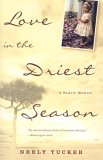Summary | Excerpt | Reading Guide | Reviews | Beyond the Book | Readalikes | Genres & Themes | Author Bio

Critics' Opinion:
Readers' Opinion:
First Published:
Feb 2004, 256 pages
Paperback:
Apr 2005, 288 pages
 Book Reviewed by:
Book Reviewed by:
BookBrowse Review Team
Buy This Book
Tambadini looked out the window. "Perhaps," he said, and waved a hand, dismissing me. Two days later, the work permit was approved. But I would remember that little encounter in the years ahead, a warning light going off before I even knew to look for one.
The racial confrontation of that morning was more a tired refrain than a new angry incantation for me, for race had been the defining issue of my life. I did not grow up learning of Tambadini's home country, a small nation in southeastern Africa that was then known as Rhodesia, but my homeland in the Deep South was mired in an oddly parallel racial struggle. In the 1960s, when blacks in Zimbabwe were fighting for independence from a white colonial regime, black people in the American South were fighting for their rights. The reaction of white Rhodesians and white southerners, particularly in my home state of Mississippi, was just about the same. For a while, for the few who noticed, the two struggles seemed to play in syncopation.
A year or two before Rhodesian prime minister Ian Smith declared in 1965 that whites would rule Rhodesia for one thousand years, George Wallace in Alabama had bellowed: "I draw the line in the dust and I say . . . segregation now, segregation tomorrow, segregation forever!" in his gubernatorial inauguration speech. Martin Luther King Jr. wrote "Letter from Birmingham Jail" the same year an African nationalist and schoolteacher named Robert Mugabe was jailed in Zimbabwe. When Smith was using the Selous Scouts to terrorize blacks, the Ku Klux Klan was burning crosses across Mississippi. One night, they staged cross burnings in sixty-four of Mississippi's eighty-two counties, just to show they ran the place. A man named Byron De La Beckwith shot Medgar Evers in the back; mobs of young white men beat marchers, activists, and the Freedom Riders. In one of the most notorious incidents of the era, Klansmen killed three civil rights workers--"two Jews and a nigger," in local parlance--outside of Philadelphia, Mississippi.
While Rhodesia was hit with sanctions by the United Nations and became an international pariah, it was Mississippi that most horrified Americans. Nina Simone didn't sing "Georgia Goddam," Anne Moody didn't write Coming of Age in Alabama, and later the movie wasn't called Louisiana Burning. It was we, in rural white Mississippi, who seemed to insist on becoming the South's symbolic heart of darkness.
It was in this season of segregation and despair that I was born in Holmes County, the poorest, most predominantly black county in the poorest, most predominantly black state in America. The land straddled the low-slung hills of central Mississippi and the fertile edge of the Delta, a place where three of every four faces were black, a place so impoverished and forlorn that it sometimes seemed only the soil was rich. Stands of pine trees mixed among the muddy creeks and towering oaks and then the land sloped away, down a kudzu-covered place called Valley Hill, the last incline for more than a hundred miles. The Delta's flat fields stretched into the distance, a vast plain of black dirt and stagnant backwaters that ran all the way to the levee and the broad brown river, the ever-rolling Father of Waters, that gave the state its name. On a slate-gray afternoon in November--rain falling in a steady drizzle on the endless rows of picked-over cotton stalks and the trailers left by the side of the road and the sleepy wooden churches and the graveyards of the faithful and the tin-roofed barns and the shotgun shacks--it was a place that soaked into the marrow of the bones and pooled there, never to leave.
We lived in Lexington, a community of about two thousand, and later outside the larger town of Starkville, eighty miles east, where we raised sheep and cows. My father, Duane, was the local assistant county agent working his way up in the Cooperative Extension Service, a state and federal agency that helped farmers with crop and livestock problems. My mother, Elizabeth, whom everyone called Betty, played piano or organ in the Southern Baptist church. My older brother, Duane junior, whom everyone called Shane, and I would sometimes tag along with my father in his pickup truck as he went from farm to farm, turning from the narrow paved highways to gravel roads, the long trails of red and brown dust swirling out behind us.
Excerpted from Love in the Driest Season by Neely Tucker, pages 7-13. Copyright© 2004 by Neely Tucker. Excerpted by permission of Crown, a division of Random House, Inc. All rights reserved. No part of this excerpt may be reproduced or reprinted without permission in writing from the publisher.





The Funeral Cryer by Wenyan Lu
Debut novelist Wenyan Lu brings us this witty yet profound story about one woman's midlife reawakening in contemporary rural China.
Your guide toexceptional books
BookBrowse seeks out and recommends the best in contemporary fiction and nonfiction—books that not only engage and entertain but also deepen our understanding of ourselves and the world around us.